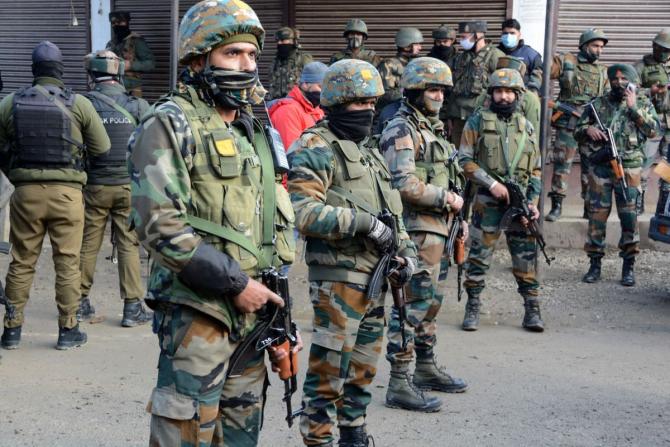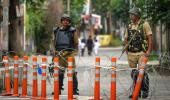The people in both places have lived in a state of denial, refusing to accept the bald fact that resorting to violence against an infinitely superior force is suicidal, observes T N Ninan.

In the Kashmir Valley, as with Palestine, it would be doubly cruel to blame the victims of history and circumstance for what has befallen them.
The people in these now (but not always) benighted places have endured alienation, the abuse of civil liberties, constant humiliation and even torture, and the loss of their homes and even lives.
In Kashmir, this encompasses both Muslims and Hindus, though the majority is, of course, Muslim.
In both parts of the world, history now seems to be marching on, leaving the losers to ponder over what might have been.
The world is increasingly coming to terms with a Zionist Israel that has stood stubborn in the face of global opinion and refused to encompass what many had hoped for, a two-state solution.
As one Arab country after another starts to deal more openly with Israel, Palestinians are left to their devices in over-crowded Gaza and grotesquely carved up areas of the West Bank.
It is no different in Kashmir.
A great many in the valley (whose population constituted the majority in the once united but religiously and culturally diverse state of Jammu and Kashmir) dreamt of an 'azaadi'(freedom) whose definition changed from one phase to the next, and from one person to the next.
Some thought of complete political independence along with a merger with Pakistan occupied Kashmir, others of outright merger with Pakistan, and yet others of an irredentist reversion to radical autonomy, with the state having its own flag, currency and prime minister.
All of these demonstrated a lack of realism that has also been the feature of Palestinian politics and aspiration over the decades.
The people in both places have lived in a state of denial, refusing to accept the bald fact that resorting to violence against an infinitely superior force is suicidal.
It is, of course, true that people driven to desperation will turn to violence, no matter how futile.
But it is no less true that they have suffered in the bargain from the excesses of quasi-police States, and also that both have ended up with less than what they might have got away with once upon a time if their aspirations had been tinged with greater realism.
This could be said of Indian diplomacy too in the context of the border dispute with China.
The deal that was on offer up to 1960, and which was possibly re-offered in the early 1980s (swapping Arunachal Pradesh for Aksai Chin), is off the table.
Beijing has gained in power and military traction, and now wants to eat further into territory that India has held in Ladakh, while laying claim also to at least the Tawang corner of Arunachal Pradesh.
The thing about power, after all, is that it feeds the appetite for more.
And so it has been with Israel and Palestine.
The deal that was on offer 70 years ago would have given Palestinians a very much bigger homeland than they are now left with.
Israel has since established more and yet more illegal settlements in territory that it has occupied.
India in turn has bitten the bullet and scrapped two crucial articles of the Constitution through which the people of the erstwhile Jammu and Kashmir had special rights.
Local politicians now ask for a restoration of the status quo ante, which they won't get.
Separatist militants hope to keep the fight going for 'azaadi', but they are tools in a hostile country's hands and have made little headway for 30 years.
There is another lesson to be learnt, or question that waits for an answer.
The Palestine authority's governance norms always compared poorly with Israel's.
Jammu and Kashmir's governments have long been a byword for sloth, incompetence and corruption, though its people are on average much better off than in the rest of India, in part because of generous Central transfers.
As for India, it has been unable to match China's super-impressive record.
How much of the loss of relative power, in some cases of legitimacy, and of autonomous volition flow from such internal failures?
Do the people in these places have it in them to face the question?
Feature Presentation: Aslam Hunani/Rediff.com












 © 2025
© 2025